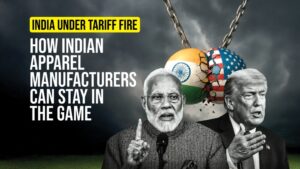The Finance Ministry on Wednesday urged larger businesses to shoulder a greater share of the tariff-induced burden in order to shield smaller enterprises in downstream industries. It called on major players to demonstrate an understanding of national interest, noting that collective action between Government and industry was essential to minimising the disruptions caused by the recent US tariff hikes.
In its July monthly economic report, the Ministry observed that while the immediate impact of the additional 50% US tariffs on Indian exports may appear limited, their secondary and tertiary effects on the wider economy could prove more challenging. It added that India’s diversification strategy through trade agreements with key economies would take time to deliver results and might not fully offset the decline in US-bound exports if high duties persist. The Ministry also cautioned that ongoing tariff uncertainties could weigh on private investment.
According to the report, the Ministry emphasised that if near-term economic pressures are absorbed more by financially stronger businesses, small and medium enterprises in downstream sectors would be better positioned to withstand the trade disruption. The steep duties, which took effect on Wednesday, could impact 55% of India’s exports to the US.
The Ministry maintained confidence in India’s ability to withstand external shocks, citing the country’s sustained economic resilience, the recent sovereign rating upgrade by S&P, and the government’s reform agenda. It noted that setbacks could strengthen and make the economy more agile if managed effectively.
The report further highlighted recent policy measures, including the creation of a task force for next-generation reforms, upcoming Goods and Services Tax reforms expected by Diwali, and state-level deregulation initiatives. These, coupled with the ratings upgrade, could reduce borrowing costs, attract foreign capital, and support investment and consumption. The Ministry said such reforms signalled the beginning of an accelerated phase of governance transformation aimed at making India more resilient, inclusive, and globally competitive in an era of heightened economic self-interest.







